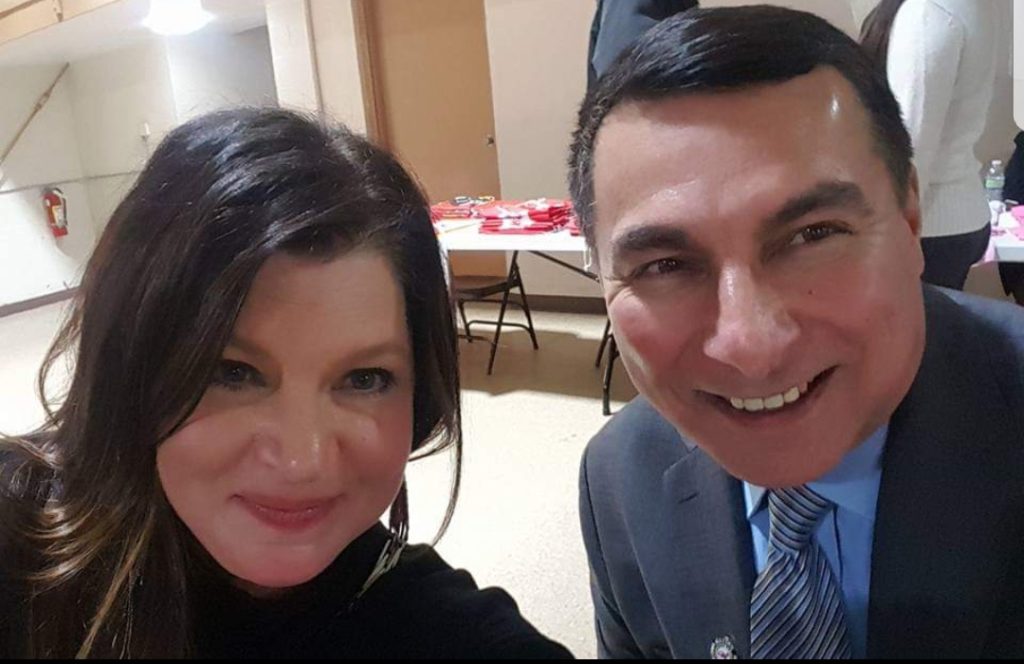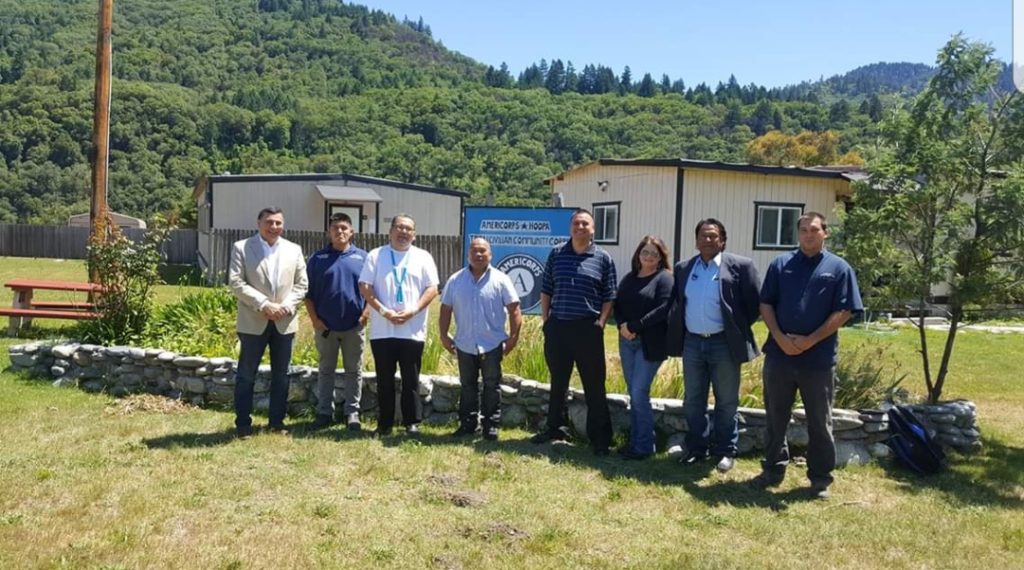This Native American Heritage Month, we’re highlighting those who play a pivotal role in helping the American Red Cross accomplish its humanitarian mission every day in tribal communities across the country. This week, we’d like to highlight Chele Rider, Red Cross Division Disaster State Relations Director in the Southwest and Rocky Mountain division. Here is a conversation we had with her around Native American Heritage Month and our work with tribal communities.

What is your role at the Red Cross?
Currently, I am a Division Disaster State Relations Director (DDSRD) in the Southwest and Rocky Mountain Division. I’ve also acted as the Tribal Relations Lead for the Red Cross for the past four and a half years. As the Tribal lead, I manage National Tribal Emergency Management partnerships with groups such as FEMA Tribal Affairs, Partnership with Native Americans, Homeland Security and the Department of the Interior Tribal Affairs, the Bureau of Indian Affairs and the National Congress of American Indians, among others. I am also a very proud member of the Choctaw Nation of Oklahoma.
In your role, how do you work with the Native American community?
As a tribal subject matter expert, I brief tribes across the country on Red Cross services and train internal and external groups on cultural sensitivity and best practices. In the past three years, I have briefed and/or trained 2,000 volunteers, staff, partners and tribes.
Locally, in my jurisdiction, I have either led or been a part of long-term recovery efforts with tribes on projects such as the Home Fire Campaign where we sought to install 10,000 smoke alarms in tribal homes in Oklahoma (my home state). I’ve also worked with tribes on preparedness, response and recovery efforts across the state. Additionally, I’ve partnered with tribal organizations across the country during national events such as the 2017 and 2018 hurricane season and the California wildfires. My goal is always to connect tribes to the services they need, which is definitely a team effort.
In your experience, what are some of the challenges that Native Americans face during disasters?
Like other remote communities, the most common challenges are limited access and resources. What is different is the required planning and the sovereignty of the tribe or nation as an independent and self-sustaining government and culture. Planning takes a little longer just due to the cultural structure and hierarchy of tribes. The respect of land, life, culture and sovereignty weigh heavily in even the tiniest of decisions. Every tribe has a slightly different culture – some are matriarchal, some patriarchal, some are very traditional and self-contained and others are less contained. Some tribes have a contiguous land base and others are non-contiguous and woven into existing counties. All of these variables make partnering a little more challenging, but I can also say that it would be hard to find better partners anywhere else. In my experience, tribes are among the first to step up to offer assistance to others, hands down.
What is one of your most memorable experiences from working with the tribes in your region?
I have been blessed to have many unbelievable experiences. Some of these experiences include building out a Recovery Resource Mapping program, being welcomed into the homes of new friends, and making a connection with a response or local staff member who helps a family find the path to the new normal. But, I would have to say one of the most memorable was last December in the Bayou of Louisiana with the United Houma Nation. This Nation is not federally recognized and as such, is not eligible to receive any Federal funding for programs. So this Nation has to rely heavily on partnerships.
I spent a week in the Bayou collaborating with partner agencies and the tribe around hurricane and local evacuation planning. And over the course of the week, we laughed and planned as the Council recounted stories of Katrina. Somewhere along the way, we had all become friends, real-life friends. We stayed over the weekend and joined Chief Dardar for Indian Santa where they handed out toys to kids all over the Bayou and attended a little Fais Do-Do, or a dance party in the Bayou. I even got to take home some homemade gumbo. Since then we have completed the second phase of planning, and I am returning this December to finish the third phase as a collaboration between local Red Cross staff and the tribe. I’m going to bring back some more gumbo.
What are a few things that you’ve learned while working with these tribes?
I have insight into not only my own culture but different cultures from across the country in different geographies. One thing I have witnessed in every tribe, and personally believe, is that as different as we all look or whatever our experience or background, we are all a part of the circle of life.
We are more alike than we are different and that ultimately, we are all one working toward the betterment of our home, community and world. You will not find more beautiful open hearts anywhere. This I know to be absolutely true.
How do you see our work with the tribes expanding in the future?
We hope to expand some grant funding asks in Oklahoma to include more tribes from the Central U.S. in a Tribal Emergency Management Summit next summer. I would like to find a way to expand our reach in partnership with tribes and open more doors for the partnerships I have been privileged to be a part of over the past years.
Chele visiting the Hoopa Valley Tribe in California to learn about the Tribal AmeriCorps Program to bring back to other tribes.

